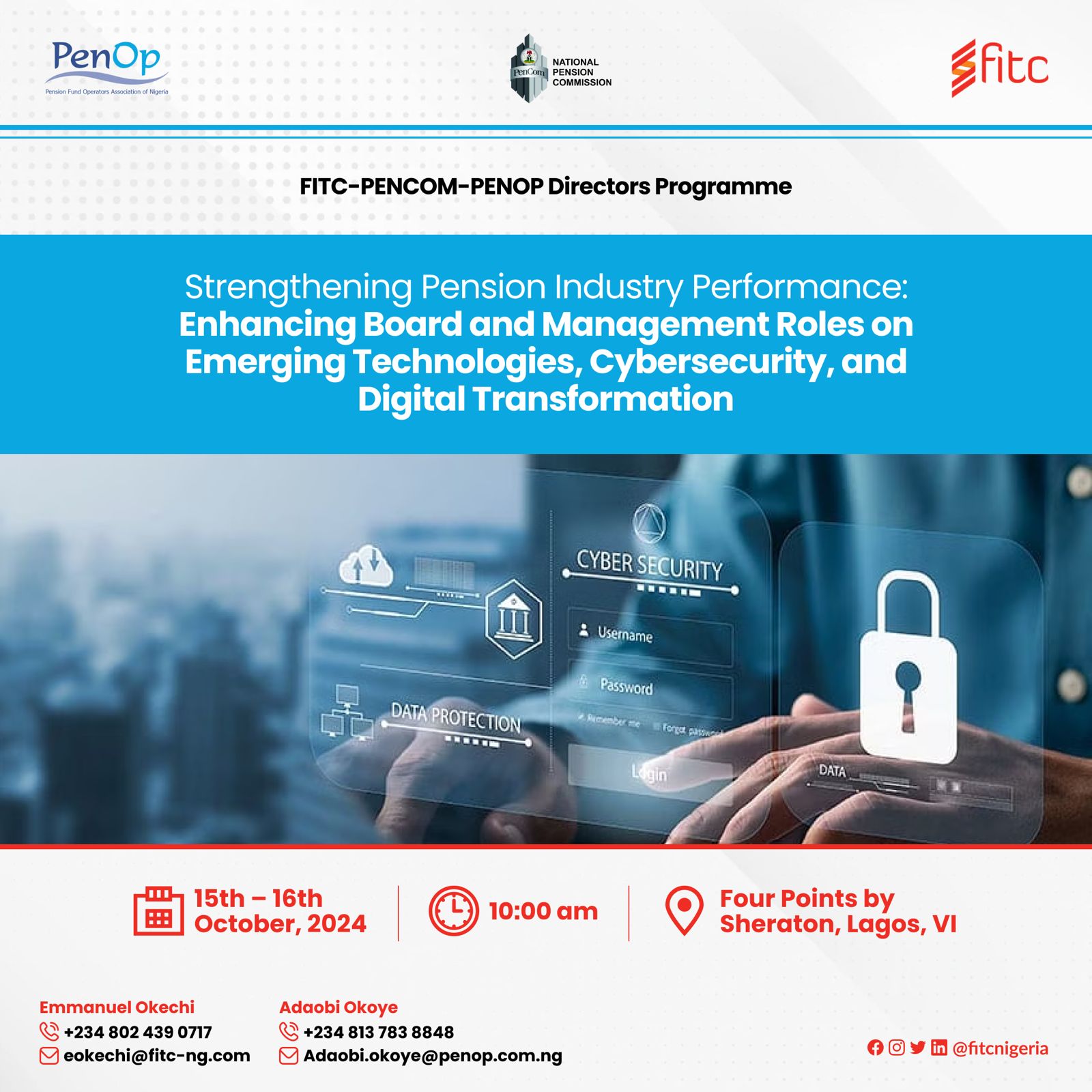Strengthening Pension Industry Performance: Enhancing Board and Management Roles on Emerging Technologies, Cybersecurity, and Digital Transformation

Introduction
At present, the pension industry is at a pivotal juncture as it navigates the complexities of emerging technologies, cybersecurity challenges, and the imperative of digital transformation. As technological advancements such as artificial intelligence, blockchain, and big data analytics redefine the operational landscape, pension funds must adapt to harness these innovations effectively. These technologies promise enhanced efficiency, improved decision-making, and superior member experiences. However, their successful integration hinges on strategic leadership and informed governance, necessitating an elevated role for board members and senior management in steering these technological adoptions.
In parallel, the increasing sophistication of cyber threats poses significant risks to the security and integrity of pension funds. Cybersecurity has become a critical area of focus, with pension funds being prime targets for cyber-attacks due to the sensitive financial and personal data they handle. Ensuring robust cybersecurity measures requires not only advanced technological defences but also a comprehensive understanding of the threat landscape and proactive risk management. Board members and senior management must champion a culture of cybersecurity awareness, ensuring compliance with regulatory standards and safeguarding member trust.
Digital transformation is reshaping the pension industry, driving a shift towards more agile, transparent, and member-centric operations. This transformation involves adopting digital tools and platforms that streamline processes, enhance communication, and deliver personalized services to members. However, the journey towards digital maturity is challenging, requiring a clear vision, strong leadership, and effective change management strategies. The roles of board members and senior management are crucial in guiding this transformation, aligning it with organizational goals, and overcoming barriers to implementation.
Therefore, it is against this background that the Pension Fund Operators Association of Nigeria (PenOp), and FITC under the auspices of the PenCom are jointly organizing the programme, to enhance the board and Management understanding of this contemporary, dynamic and evolving technological landscape, which will enable them to operate efficiently, safeguard their stability and security of the pension system. Furthermore, understanding of the changing technological landscape will help the leaders to build a more resilient and future-ready Pension Industry that can effectively navigate the opportunities and challenges brought by emerging technologies, cybersecurity threats, and digital transformation.
Target participants:
- Directors and Board members in the Pension Industry who are responsible for governance, oversight, and strategic decision-making. This includes both executive and non-executive directors.
- Chief Executive Officers (CEOs), Chief Technology Officers (CTOs), Chief Information Security Officers (CISOs), Chief Risk Officers (CROs), and other senior executives responsible for technology, cybersecurity, and risk management within the Industry.
- Representatives from regulatory bodies and supervisory authorities.
- Government officials and policymakers involved in formulating regulations and policies related to technology, cybersecurity, and financial system stability.
- Industry Experts and Consultants
Learning Outcomes
- Gain a heightened awareness and knowledge of emerging technologies such as artificial intelligence, blockchain, and cloud computing, and their continuous impact on the Pension industry, and the associated risks and challenges.
- Develop the ability to assess and analyze cybersecurity threats, data breaches, and vulnerabilities that may arise from the adoption of new technologies and evaluate impact of these risks on the Pension system.
- Equip Directors and Senior Management leaders with more practical knowledge and skills to fulfill their responsibilities effectively by incorporating technology into strategic decision-making processes and ensuring compliance with relevant regulations.
Learning objective
Explore options to effectively integrate emerging technologies into the overall business strategies, to enable the Pension administrators leverage technology to improve operational efficiency, enhance customer experiences, and drive innovation.
Gain comprehensive understanding of emerging technologies such as artificial intelligence, blockchain, cloud computing, and their extraordinary impact on the Pension industry.
Evaluate risks posed by the emerging technologies, as well as identify potential cybersecurity threats, data breaches, and vulnerabilities that may arise from the adoption of new technologies.
Gain deeper understanding of cybersecurity best practices and the importance of robust cybersecurity strategies, measures and structure, to safeguard sensitive data, and protect against cyberattacks.
Examine the role of boards in overseeing technology and cybersecurity risks, establishing effective governance frameworks, and integrating risk management practices into decision-making processes.
Loading…







